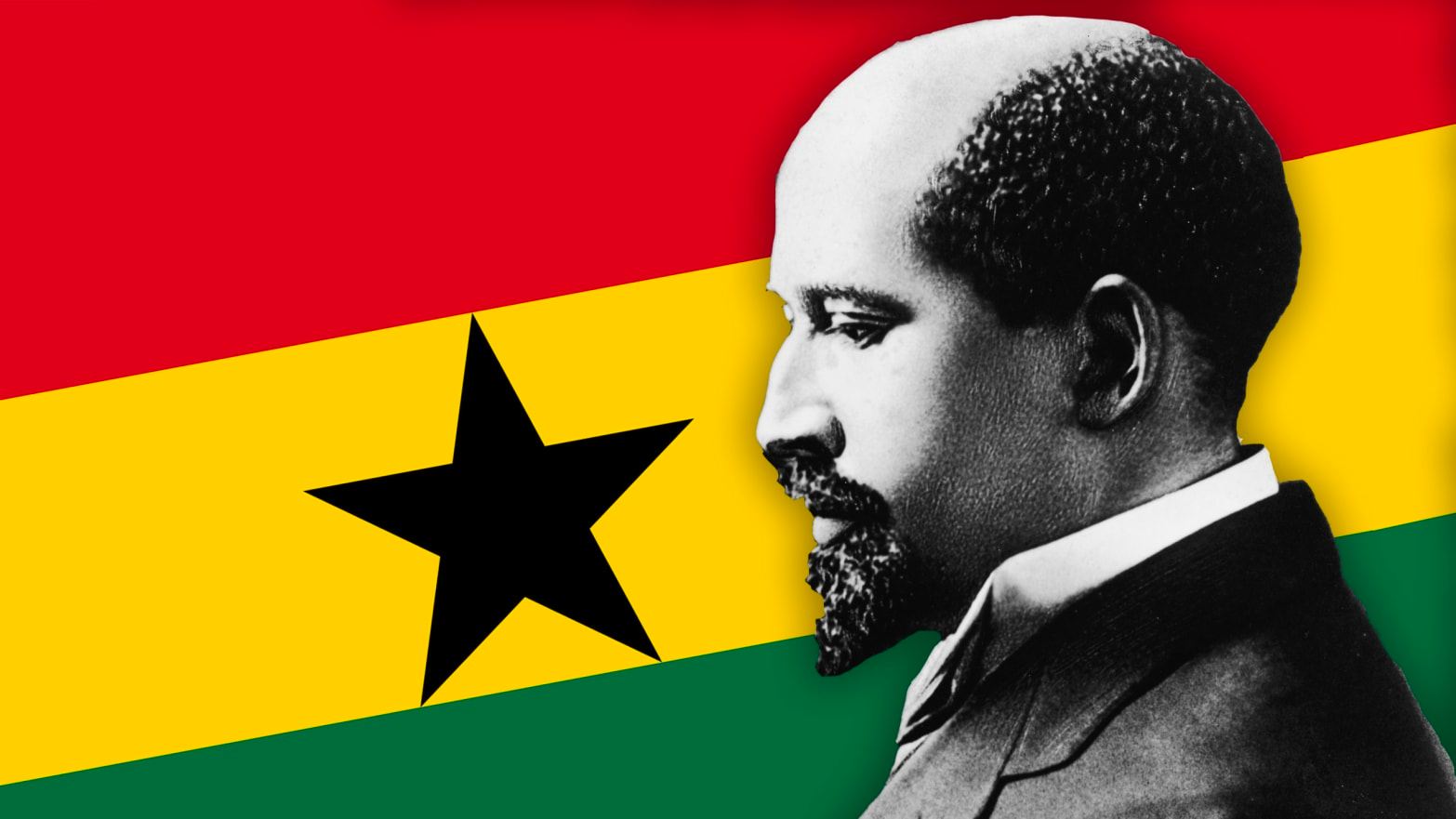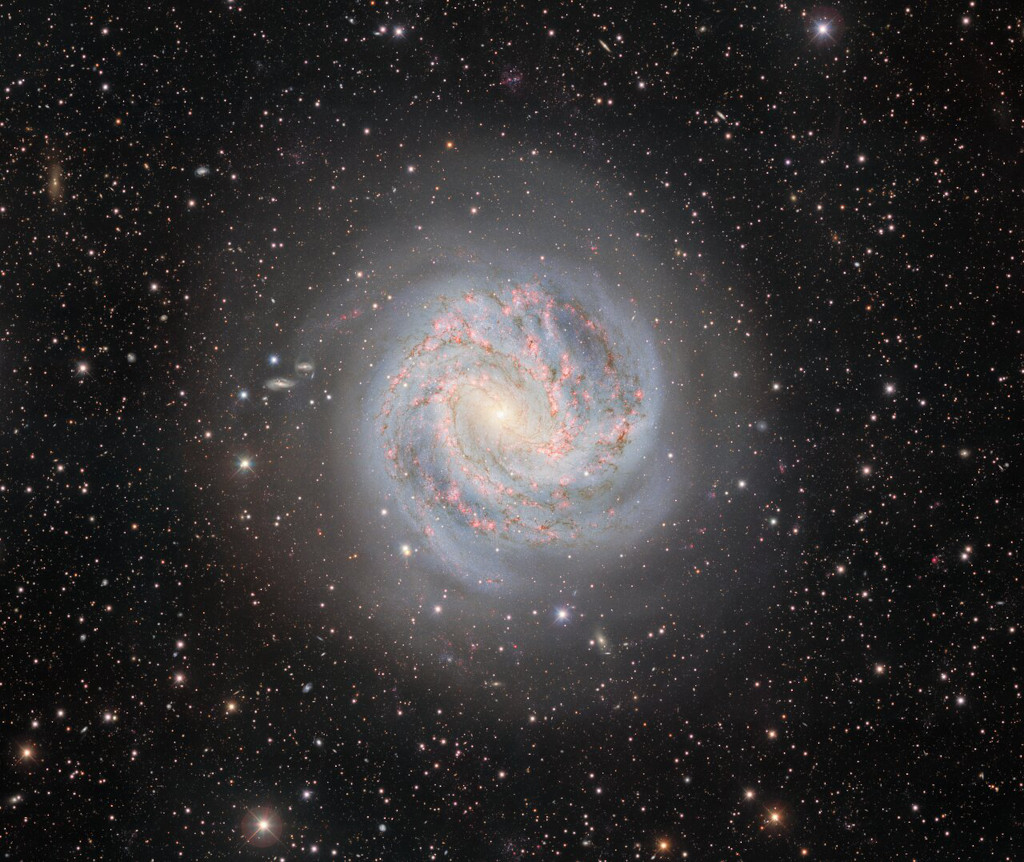Blog
Michael Kevin Taylor (born 17 January 1949) is an English guitarist, best known as a former member of John Mayall’s Bluesbreakers (1967–1969) and the Rolling Stones(1969–1974). As a member of the Stones, he appeared on Let It Bleed (1969), Get Yer Ya-Ya’s Out! (1970), Sticky Fingers (1971), Exile on Main St. (1972), Goats Head Soup(1973) It’s Only Rock ‘n Roll (1974), and Tattoo You (1981).
more...Sidney “Big Sid” Catlett (January 17, 1910 – March 25, 1951 Evansville, IN) was an American jazzdrummer. Catlett was one of the most versatile drummers of his era, adapting with the changing music scene as bebop emerged.
After performing for several lesser established musical acts, Catlett began recording and performing with multiple musicians including Benny Carter, McKinney’s Cotton Pickers, Fletcher Henderson, and Don Redman throughout the 1930s. Between 1938 and 1942, Catlett was Louis Armstrong‘s drummer of choice as he was regularly featured in Armstrong’s big band, while also periodically joining Benny Goodman‘s group. Following a brief stint in collaboration with Duke Ellington in 1945, Catlett led some of his own bands through the remainder of the 1940s, and was involved in Armstrong’s All-Stars between 1947 and 1949.
Catlett was one of the few drummers to successively transition into bebop, appearing on Dizzy Gillespie‘s progressive recordings in 1945. Catlett participated in the Gillespie-Charlie Parker segment of a New Jazz Foundation June 1945 concert at New York’s Town Hall; a recording surfaced in 2005. In 1950, he performed with Hoagy Carmichael at the Copley Plaza Hotel. In early 1951, he began to suffer from pneumonia. In that same year, he died of a heart attack while visiting friends backstage at a Hot Lips Pagebenefit concert in Chicago, Illinois.
(January 17, 1910 – March 25, 1951) was an American jazzdrummer. Catlett was one of the most versatile drummers of his era, adapting with the changing music scene as bebop emerged.
In early 1951, he began to suffer from pneumonia. In that same year, he died of a heart attack while visiting friends backstage at a Hot Lips Pagebenefit concert in Chicago, Illinois.
more...Billy Harper (born January 17, 1943 Houston, Tx) is an American jazz saxophonist, “one of a generation of Coltrane-influenced tenor saxophonists” with a distinctively stern, hard-as-nails sound on his instrument. Harper has played with some of jazz’s greatest drummers; he served with Art Blakey‘s Messengers for two years (1968–1970); he played very briefly with Elvin Jones (1970), he played with the Thad Jones/ Mel Lewis Orchestra in the 1970s, and was a member of Max Roach‘s quartet from 1971–1978. In 1979, Harper formed his own group, touring with it and documenting its music on the recording Billy Harper Quintet in Europe, and he was featured as a soloist on a 1983 recording, Such Great Friends, with virtuoso, visionary pianist and record producer Stanley Cowell. After a period of relative inactivity in the 1980s, Harper came back strong with another international tour, which ended with perhaps his most ambitious recording: the three-volume Live on Tour in the Far East (1991). In the new millennium, Harper’s recording activity has been subdued and sporadic, though more recently he appeared as a regular member of pianist-jazz historian Randy Weston‘s ensembles. In 2013, they recorded their first album as a duo, entitled The Roots of the Blues.
more...Cedar Anthony Walton Jr. (January 17, 1934 – August 19, 2013 Dallas, TX) was an American hard bop jazz pianist. He came to prominence as a member of drummer Art Blakey‘s band, The Jazz Messengers, before establishing a long career as a bandleader and composer. Several of his compositions have become jazz standards, including “Mosaic”, “Bolivia“, “Holy Land”, “Mode for Joe” and “Ugetsu/Fantasy in D”.
Walton was drafted into the U.S. Army and stationed in Germany, cutting short his rising status in the after-hours jazz scene. In the Army he played with musicians Leo Wright, Don Ellis and Eddie Harris. On his discharge after two years, he picked up where he left off, playing as a sideman with Kenny Dorham, on whose 1958 album This Is the Moment!, he made his recording debut. He joined the Jazztet led by Benny Golson and Art Farmer and played with them from 1958 to 1961. In April 1959 he recorded an alternate take of “Giant Steps” with John Coltrane, though he did not solo. In the early 1960s Walton joined Art Blakey’s Jazz Messengers as a pianist-arranger (on the same day Freddie Hubbard joined the group), where, for the next three years, he wrote and arranged such originals as “Ugetsu” and “Mosaic”.[citation needed]
He left the Messengers in 1964 and by the late 1960s was part of the house rhythm section at Prestige Records. In addition to releasing his own recordings there, he recorded with Sonny Criss, Pat Martino, Eric Kloss, and Charles McPherson. For a year, he was Abbey Lincoln‘s accompanist, and recorded with Lee Morgan from 1966 to 1968. In the mid-1970s he led the funk group Mobius. He arranged and recorded for Etta James from the mid-1990s on, helping her win a Grammy Award for Best Jazz Vocal Album for Mystery Lady: Songs of Billie Holiday (RCA Victor) in 1994.
more...Entrada – Entrance, often performed to a guitar falseta or to the singer’s entrance (salida) ti ri ti tran, tran…
Llamada – The dancer’s call starting on count 1, indicating that a new section is about to begin. This can be a long sequence of footwork or just one or two sets of compás (12 or 24 counts). This is also the cue for the singer’s entrance.
Letra – The dancer’s call starting on count 1, indicating that a new section is about to begin. This can be a long sequence of footwork or just one or two sets of compás (12 or 24 counts). This is also the cue for the singer’s entrance.
First Escobilla – The first extended footwork section. The dancer displays virtuosic footwork here while the guitar plays a standardized arpeggio pattern. The singer doesn’t usually sing during an escobilla. This builds to a subída, two or more sets of compás in which the dancer builds to a climax.
Silencio – This is a traditional 6-12 compás falseta performed by the guitarist. The music is slow and in the parallel minor key. The dancer interprets the music, usually in a lyrical rather than percussive manner. The final compás moves back to the major key and the original tempo, leading to the castellana.
Castellana – This is a combination footwork/remate section that leads away from the silencio into an escobilla. Usually 4 compás long, the singer sings the traditional ‘tiriti tran tran tran” or a shortened verse. This generally ends with one or more sets of compás for the remate. This section is not always performed, but is often included in a completely traditional version of the dance.
Seco – This footwork section is often performed a palo seco, where the guitar acts as a rhythm instrument as the guitarist strums muted strings, and palmistas perform strong palmas. The dancer can establish the tempo with palmas and traveling steps for two or more compás, and will continue on to perform many intricate footwork variations.
Third Escobilla – The guitar returns with traditional escobilla music while the dancer performs more intricate footwork variations.
Cambio – The traditional escobilla starts on count 1 of the compás while the Bulerías de Ca’i, the closing section, starts on beat 12. In the cambio section, the guitarist and dancer move the accent structure to beat 12 to segue into the bulerías.
Buleria de C’ai – Bulerías de Ca’i is performed as a finale/remate for the entire dance. The singer sings the traditional bulerías de Ca’i in a major key. This section transitions into the salida/cierre with a desplante llamada – a standardized 12 to 24 count pattern that is the bridge/cue into Bulerías e Ca’i.
Salida – The dancer dances off stage to traditional closing music. The dancer can also end on stage, but will usually perform a long traveling pattern leading to the closing cierre.
more...
Beautiful and bright spiral galaxy M83 lies a some twelve million light-years away, near the southeastern tip of the very long constellation Hydra. Prominent spiral arms traced by dark dust lanes and blue star clusters lend this galaxy its popular name, The Southern Pinwheel. Still, reddish star forming regions that dot this cosmic pinwheel’s spiral arms have suggested another nickname, the Thousand-Ruby Galaxy. A mere 40,000 light-years across, smaller than the Milky Way, M83 is a member of a group of galaxies that includes active galaxy Centaurus A. In fact, the core of M83 itself is bright at x-ray energies, showing a high concentration of neutron stars and black holes left from an intense burst of star formation. This sharp color image also features spiky foreground Milky Way stars and distant background galaxies. The image data was captured with the Dark Energy Camera and Blanco 4-meter telescope at Cerro Tololo Inter-American Observatory.

Helen Folasade Adu CBE (Yoruba: Fọláṣadé Adú ; born 16 January 1959), known professionally as Sade Adu or simply Sade is a Nigerian-British singer, known as the lead vocalist of her band Sade. One of the most successful British female artists in history, she is often recognised as an influence on contemporary music Her success in the music industry was recognised with the honour Officer of the Order of the British Empire in 2002, and she was made Commander in the 2017 Birthday Honours.
Sade was born in Ibadan, British Nigeria, and was brought up in England from the age of four. She studied at Saint Martin’s School of Art in London and gained modest recognition as a fashion designer and part-time model before joining the band Pride in the early 1980s. After gaining attention as a performer, she formed the band Sade, and secured a recording contract with Epic Records in 1983.
A year later, the band released the album Diamond Life, which became one of the era’s best-selling albums and the best-selling debut by a British female vocalist. In July 1985, Sade was among the performers at the Live Aid charity concert at Wembley Stadium, and the next year, she appeared in the film Absolute Beginners. The band released their third album (Stronger Than Pride) in 1988, and a fourth album (Love Deluxe) in 1992. The band went on hiatus in 1996 after the birth of Sade’s child.
After eight years the band reunited in 1999 and released Lovers Rock in 2000. The album departed from the jazz-inspired inflections of their previous work, featuring mellower sounds. Ten years later the band released of Soldier of Love, their sixth studio album, and toured arenas worldwide.
Since the 2011 tour finished, they have released two songs, “Flower of the Universe” for the soundtrack of Disney‘s A Wrinkle in Time, and “The Big Unknown“, part of the soundtrack of Steve McQueen‘s film Widows.
more...Aldo Romano (born 16 January 1941) is an Italian jazz drummer. He also founded a rock group in 1971.
He was born in Belluno, Italy. Romano moved to France as a child and by the 1950s he was playing guitar and drums professionally in Paris, but he first gained attention when he started working with Don Cherry in 1963. He recorded with Steve Lacy,and would go on to tour with Dexter Gordon among others. In the 1970s, he moved into rock-influenced forms of jazz fusion and, in 1978, made his first album as a leader. In the 1980s, he returned to his earlier style for several albums. Although he has lived most of his life in France, he has retained an affection for Italy and has set up a quartet of Italian jazz musicians. Romano also played a role in starting the career of French pianist, Michel Petrucciani. In 2004 he won the Jazzpar Prize.
more...Henry Bertholf “Spike” Robinson (January 16, 1930 – October 29, 2001 Kenosha, WI) was an American jazz tenor saxophonist. He began playing at age twelve, recording on several labels, including Discovery, Hep and Concord. However, he sought an engineering degree and followed that profession for nearly 30 years. In 1981 he returned to recording music.
In 1948, Robinson joined the US Navy as a musician and by 1950 was based in the UK. He was soon regularly jamming at London’s Club Eleven, Downbeat Club and Studio 51 with leading UK beboppers, including Tommy Pollard, Johnny Dankworth and Victor Feldman. He made a few records for Carlo Krahmer‘s Esquire label but eventually was transferred home and demobilized. Unhappy with the music scene in the Chicago area, he took advantage of the G.I. Bill to study electronic engineering at university.
more...Barbara Lynn (born Barbara Lynn Ozen, later Barbara Lynn Cumby, January 16, 1942 Beaumont, TX) is an American rhythm and blues and electric blues guitarist, singer and songwriter. She is best known for her R&B chart-topping hit, “You’ll Lose a Good Thing” (1962). In 2018, Lynn received a National Heritage Fellowship.
She began performing in local clubs in Texas. Singer Joe Barry saw her and introduced Lynn to producer Huey P. Meaux, who ran several record labels in New Orleans. Her first single, “You’ll Lose a Good Thing“, for which she was the songwriter, was recorded at Cosimo Matassa‘s J&M Recording Studio with session musicians including Mac Rebennack (Dr. John). Released by Jamie Records, it was a number 1 US Billboard R&B chart hit and Top 10 Billboard Hot 100 hit in 1962. The song was later recorded by Aretha Franklin and became a country hit record for Freddy Fender.
more...Abell 370 is a galaxy cluster located nearly 5 billion light-years away from the Earth (at redshift z = 0.375), in the constellation Cetus. Its core is made up of several hundred galaxies. It was catalogued by George Abell, and is the most distant of the clusters he catalogued.
In the 1980s astronomers of Toulouse Observatory discovered a gravitational lens in space between Earth and Abell 370 using the Canada-France-Hawaii Telescope. A curious arc had been observed earlier near the cluster, but the astronomers were able to recognize it as this phenomenon.

Don Van Vliet (born Don Glen Vliet; January 15, 1941 – December 17, 2010) was an American singer, songwriter, multi-instrumentalist, and visual artist best known by the stage name Captain Beefheart. Conducting a rotating ensemble known as the Magic Band, he recorded 13 studio albums between 1967 and 1982. His music blended elements of blues, free jazz, rock, and avant-garde composition with idiosyncratic rhythms, absurdist wordplay, and Vliet’s gravelly singing voice with a wide vocal range. Renowned as an enigmatic persona, Beefheart frequently constructed myths about his life and was known to exercise an almost dictatorial control over his supporting musicians. Although he achieved little commercial success, he sustained a cult following as an influence on an array of experimental rock and punk-era artists.
A sculpting prodigy in his childhood, Van Vliet developed an interest in blues, R&B, and jazz during his teen years in Lancaster, California, and formed “a mutually useful but volatile” friendship with musician Frank Zappa, with whom he sporadically competed and collaborated. He began performing in his Captain Beefheart persona in 1964 and joined the original Magic Band line-up, initiated by Alexis Snouffer, the same year. The group released their debut album Safe as Milk in 1967 on Buddah Records. After being dropped by two consecutive record labels they signed to Zappa’s Straight Records, where they released 1969’s Trout Mask Replica; the album would later rank 58th in Rolling Stone magazine’s 2003 list of the 500 greatest albums of all time. In 1974, frustrated by a lack of commercial success, he pursued a more conventional rock sound, but the ensuing albums were critically panned; this move, combined with not having been paid for a European tour, and years of enduring Beefheart’s abusive behavior, led the entire band to quit.
Beefheart eventually formed a new Magic Band with a group of younger musicians and regained critical approval through three final albums: Shiny Beast (1978), Doc at the Radar Station (1980) and Ice Cream for Crow (1982). Van Vliet made few public appearances after his retirement from music in 1982. He pursued a career in art, an interest that originated in his childhood talent for sculpture, and a venture that proved to be his most financially secure. His abstract expressionist paintings and drawings command high prices, and have been exhibited in art galleries and museums across the world. Van Vliet died in 2010, having had multiple sclerosis for many years.
more...Ida Lewis “Queen Ida” Guillory (born January 15, 1929 Lake Charles, LA) is a Louisiana Creoleaccordionist. She was the first female accordion player to lead a zydeco band.Queen Ida’s music is an eclectic mix of R&B, Caribbean, and Cajun, though the presence of her accordion always keeps it traditional.
more...More Posts
- The Cosmos with Sh2-155
- Michael Shrieve Day
- Louis Bellson Day
- World Music with David Cerreduela
- Daily Roots with Amy Winehouse
- BEAU KOO JACKS 7-5-18
- The Cosmos with NGC 1032
- Robbie Robertson Day
- Smiley Lewis Day
- World Music with Aladár Csiszár
- Daily Roots with Winston McAnuff
- Happy 4th of July 2018
- The Cosmos with NGC 6946
- Bill Withers Day
- Fred Wesley Day
- World Music with Stony Point
- Daily Roots with the Revolutionaries
- The Cosmos with UGC 5340
- Dr Lonnie Smith Day
- Johnny Coles Day

